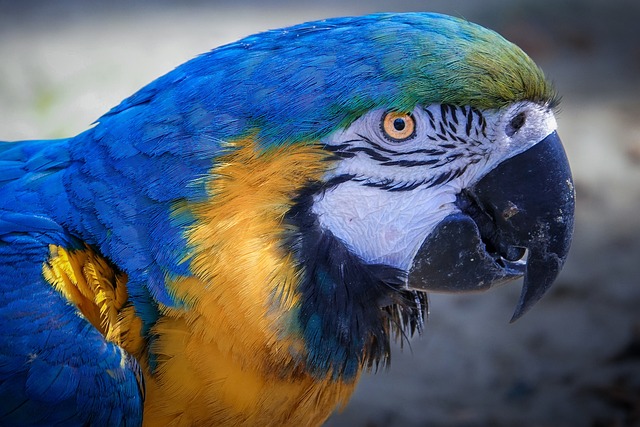Introduction
Parrots are inquisitive and often very playful birds, but when their need for attention and socialization is not sufficiently met, they can become aggressive, territorial and start biting.
Parrot aggression is a common behavior complaint and it can be a distressing experience for both the owner and the bird itself. The good news is that most parrot biting and aggression can be prevented and deterred using effective strategies.
In this article, we will explore five effective ways to discourage parrot biting and aggression.
From providing your parrot with the right environment to teaching them commands and correct body language, you will be able to take the necessary steps to ensure a happy and healthy relationship with your parrot.

Understand the Causes of Parrot Biting and Aggression
Parrot biting and aggression can be caused by a number of things. One of the most common causes is territoriality – the parrot may see its cage, perch or even its human companion as something to be defended.
This may be overcome by making sure the parrot's environment is comfortable and stress-free. A comfortable setting usually involves plenty of space to move around, plenty of toys and a variety of different foods.
Fear can also be a major factor in parrot biting and aggressive behavior. If a parrot is unfamiliar with its surroundings and experiences changes that frighten it, it may become aggressive.
The best way to prevent this is to introduce the parrot to its new environment slowly and patiently. Allow the parrot to explore its new home, get used to noise levels and build trust before introducing new elements into its environment.
This helps the parrot to adjust confidently and reduces the chances of it resorting to fear-driven biting and aggression.
The parrot's diet also plays an important role in its behavior. A poor diet may lead to a deficiency in vitamins and minerals. This may cause the bird to become irritable and aggressive.
To ensure the parrot gets all the necessary nutrients, it's important to feed it fresh fruit and vegetables, supplemented with a quality pellet food. These should provide essential vitamins, minerals and amino acids that the parrot needs for good health.
Lastly, parrots that do not receive enough social interaction may become bored and sometimes, aggressive. Parrots are naturally social creatures; they want to spend time with their human companions.
Make sure the parrot enjoys regular interaction and attention – this can take the form of playtime, cuddles and even light conversation. All of these activities provide enrichment and mental stimulation that help to keep the parrot content and discourage aggression.
Provide For Your Parrot's Physical and Psychological Needs
1. Provide a safe, secure environment.
2. Furnish an appropriately sized cage that allows for movement and freedom of flight.
3. Offer a variety of toys to provide your parrot with physical and mental stimulation.
4. Provide fresh food and clean drinking water on a daily basis.
5. Place your parrot's cage in a well-lit area, away from direct sunlight, away from drafts and other extreme temperatures.
6. Talk to your parrot daily and interact with it.
7. Allow your parrot plenty of out-of-cage time in the home to fly and explore.
8. Provide your parrot with companionship and socialization with other parrots, humans, and animals.
9. Take your parrot to the vet on a regular basis for check ups.
10. Provide a nest box or sleeping area for your parrot to retreat to when they need privacy.
Respond with Non-Violent Solutions
1. Allow people to have a safe space to express themselves and their feelings.
2. Foster communication between individuals and provide tools for nonviolent problem solving.
3. Implement positive reinforcement and reward systems to replace any violent behaviors.
4. Employ counseling, restorative justice, or mediation strategies as means for resolving conflicts.
5. Focus on teaching non-violent approaches to conflict resolution and de-escalation techniques.
6. Strengthen relationships between individuals by emphasizing empathy and understanding.
7. Create a system of peer support and mentorship to help youth work through difficult situations.
8. Establish more recreational programs and activities that encourage physical, mental and emotional growth.
Final Thoughts about Parrot Biting and Aggression
Parrot biting and aggression can be a serious issue for parrot owners, but it is important to understand the causes and take steps to prevent it.
Many parrots will bite out of fear, insecurity, or curiosity, so it is important to make sure that their environment is safe and secure.
Additionally, providing plenty of stimulation and activities can help to keep them mentally and physically engaged and reduce the chance of biting.
Finally, training your parrot to respond to cues, such as “step up” and “no” can help to correct behavior and reduce aggression.
Taking the time to understand why and how parrots bite can help parrot owners be better prepared to prevent and manage aggressive behavior and ultimately ensure a happy and healthy home for their feathered friends.



